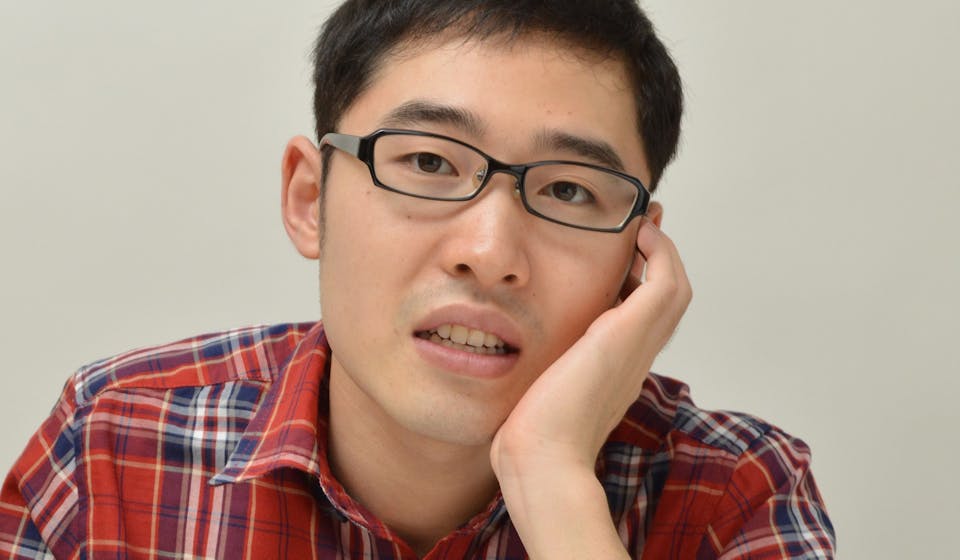Imprint
- Sceptre
- Sceptre
Fall Down Seven Times, Get Up Eight: A young man's voice from the silence of autism
Naoki Higashida
Prose: non-fiction, Autism & Asperger’s Syndrome
Following his ground-breaking international bestseller THE REASON I JUMP, written when he was only thirteen, Naoki Higashida offers equally illuminating and practical insights into autism from his current perspective as a young man.
The Sunday Times bestseller
Naoki Higashida met international success with THE REASON I JUMP, a revelatory account of life as a thirteen-year-old with non-verbal autism. Now he offers an equally illuminating insight into autism from his perspective as a young adult. In concise, engaging pieces, he shares his thoughts and feelings on a broad menu of topics ranging from school experiences to family relationships, the exhilaration of travel to the difficulties of speech. Aware of how mystifying his behaviour can appear to others, Higashida describes the effect on him of such commonplace things as a sudden change of plan, or the mental steps he has to take simply to register that it's raining. Throughout, his aim is to foster a better understanding of autism and to encourage those with disabilities to be seen as people, not as problems.
With an introduction by David Mitchell, FALL DOWN SEVEN TIMES, GET UP EIGHT includes a dreamlike short story Higashida wrote for this edition. Both moving and of practical use, the book opens a window into the mind of an inspiring young man who meets the challenges of autism with tenacity and good humour. However often he falls down, he always gets back up.
Praise for Fall Down Seven Times, Get Up Eight: A young man's voice from the silence of autism
-
Now that Naoki Higashida is a young adult, he has developed rich inner thoughts and he strives to learn more about the world around him. Until he was able to communicate with his alphabet grid, he was lonely and it was agony. He begs teachers and others, who work with special needs, to provide opportunities to learn and grow. A sheltered life is not paradise. Naoki maintains that to avoid impairment of personal development, he must have contact with "some of the hardships other people endure." This book is essential reading for parents and teachers who work with individuals with autism who remain non-verbal. - Temple Grandin
-
There is much to be learned from it about this mysterious condition that Higashida regards as both a blessing and a curse. The book's single most important function is to drum into the sometimes thick heads of us neurotypical readers that people with autism experience a genuine and usually insuperable disconnection between what they want to say or do and what their brain allows them . . . Higashida's writing opens my mind to all sorts of possibilities for interpreting the behaviour of both my sons . . . a defining characteristic of autism is held to be lack of empathy, yet Higashida shows a delicate regard for the difficulties his condition creates and is adept at explaining his experiences in language that makes sense to neurotypicals - Observer
-
Wise and witty, it offers a second insider's insight into the mysteries of non-verbal autism . . . The evolution of Higashida's insights is at times almost unbearably moving . . . Ultimately, though, his self-awareness is uplifting, reminding us to take joy in life's simple pleasures . . . sage and subtle - Financial Times
-
Once again, the invitation to step inside Higashida's mind is irresistible . . . Higashida challenges the common belief that people with severe autism are exclusively literal-minded. Time and again he uses metaphor to help readers understand his world . . . if any author can help us get a grip, it's Higashida. - Evening Standard
-
Higashida's books belong in the small but intense canon of "locked-in" memoirs, such as Awakenings or The Diving Bell and the Butterfly . . . Higashida reveals himself to be far more conflicted than before. The titles show how much the years have changed him. The Reason I Jump had joy shimmering through it. Fall Down Seven Times, Get Up Eight - the title is taken from a Japanese proverb - is about persistence. - The Times

Naoki Higashida
Naoki Higashida was born in Kimitsu, Japan in 1992. He was diagnosed with severe autism in 1998 and subsequently attended a school for students with special needs, then (by correspondence) Atmark Cosmopolitan High School, graduating in 2011. Having learnt to use a method of communication based on an alphabet grid, Naoki wrote The Reason I Jump when he was thirteen and it was published in Japan in 2007. He has published several books since, from autobiographical accounts about living with autism to fairy tales, poems and illustrated books, and writes a regular blog. Despite his communication challenges, he also gives presentations about life on the autistic spectrum throughout Japan and works to raise awareness about autism. In 2011 he appeared in director Gerry Wurzburg's documentary on the subject, Wretches & Jabberers.


























.png?auto=compress&w=150&h=60&fit=crop&fm=jpg)

.png?auto=compress&w=150&h=60&fit=crop&fm=jpg)



